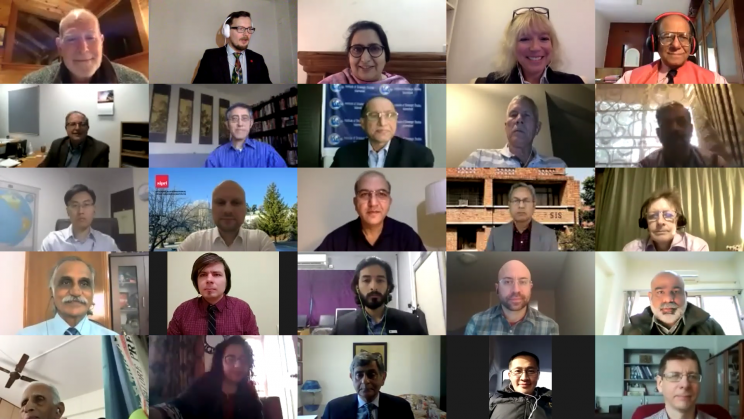
On 8–9 December, SIPRI hosted a virtual workshop on ‘Nuclear challenges in South Asia: Views from India, Pakistan, China, Russia, Australia, New Zealand and the USA’. The event was part of SIPRI’s project on ‘Assessing Nuclear Deterrence Risks and Challenges in South Asia’.
During the two-day event, 13 speakers and over 60 participants discussed key shifts in nuclear posture, and technologies and dynamics originating within as well as outside of South Asia. They also discussed key nuclear challenges and misconceptions impacting South Asia and the role of external actors. The workshop sought to lay the foundation for the next step of identifying concrete recommendations on engagement between the countries represented at the workshop and confidence-building measures (CBMs) addressing nuclear risks.
Among the topics addressed were the role of no first use and limited or tactical nuclear war scenarios in the nuclear postures of India, Pakistan, China, Russia and the USA. Participants also discussed the key technological advances shaping nuclear postures and how this interaction has changed over time with such advances as cruise missiles, submarine-launched ballistic missiles (SLBMs), and multiple independently targetable re-entry vehicles (MIRVs) deployed on ballistic missiles. In doing so, they detailed means by which these developments may affect escalatory risks and nuclear deterrence stability in South Asia. When exploring this range of nuclear challenges, participants discussed the role of external actors as both stabilizing and destabilizing forces within the region. After delineating a wide range of political and military misconceptions associated with South Asia, the participants suggested preliminary transparency measures and CBMs that may be employed to address the nuclear risks referred to above.
The participants supported the continuation of a dialogue on nuclear issues in South Asia, advocating for more focused discussions and further exploration of concrete CBMs to respond to nuclear challenges.
The event was made possible through funding by a grant from the German Federal Foreign Office.
The event was conducted under the Chatham House Rule.